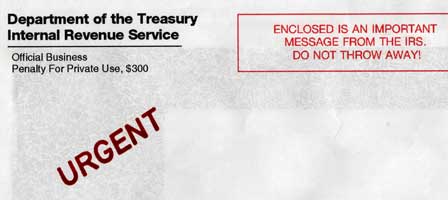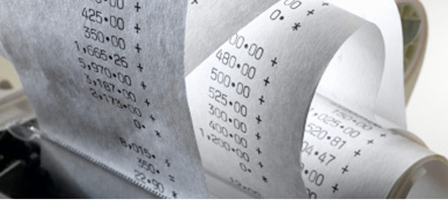GOT A LETTER FROM THE IRS?
Article Highlights:
- Confirm the Letter Was Not Sent in Error
- Examine the Contents
- Avoid Procrastination, Which Leads to Bigger Problems
- Send Any Payments
- Consider Change-of-Address Complications
- Be Aware of ID Theft
If you have received an IRS envelope from the Internal Revenue Service (IRS) in your mailbox that does not contain a refund check, it will probably cause an increase your heart rate likely increased. But Don’t panic, though; most of the issues in these letters can be dealt with simply and painlessly.
Every year, the IRS sends millions of letters and notices to taxpayers, notifying them of changes to their account, requesting additional information, and alerting them to payments that are due. Many of these letters are issued in error or are sent only because of a misinterpretation of facts.
If you get such a letter, it may be for one of several reasons; perhaps you overlooked an item of income or the amounts you reported on your return don’t match other information that the IRS received. It is also possible that someone else is using your SSN or is claiming your child as a dependent. The list goes on.
Such a notice normally covers a very specific issue about your account or your tax return. The notice should offer specific instructions on what you need to do to satisfy the inquiry. However, because the law requires that these letters be sent to advise you of your rights and other information, they can be very lengthy and difficult to understand. Thus, it is important to call this office or forward a copy of your letter immediately so that it can be reviewed and handled accordingly.
The worst option is to ignore the letter and hope that the issue will go away. Most of these letters are computer-generated, so if the issue is not resolved after a certain period of time, another letter will automatically be sent. As you might expect, each succeeding letter will become more aggressive and more difficult to deal with. Procrastination only makes the situation worse!
Most importantly, don’t automatically pay the amount the IRS is requesting unless you are positive that it is correct. Quite often, taxpayers do not actually owe the amount that is being billed, and it is quite difficult and time-consuming to get a refund for such a payment. It is thus good practice to have this office review your notice prior to making a payment.
Unfortunately, many taxpayers receive these letters without knowing it because they have moved and left no forwarding address. The IRS registers your address change when you file your annual tax return, but that may not be timely enough, especially if your return is on an extension or if you are behind in your filings. It is always better to notify the IRS (and your state, if applicable) when you get a new address, just as you would your family and your financial and business affiliations. You may not want to receive correspondence from the IRS, but as noted above, it is always easier to deal with the first notice than to wait. The complications can only increase when notices go unanswered. The IRS provides Form 8822 (Change of Address) for taxpayers who have relocated between tax filings.
Receiving such a notice may also be the first indication that your ID has been compromised by cyber thieves, many of whom have already filed phony tax returns using other people’s Social Security Numbers. If this is the case, you will want to take immediate actions to minimize the financial damage.
In fact, your notice might not even be from the IRS. It may actually be from a thief who is trying to sucker you into a scam to separate you from your hard-earned money.
You are strongly urged to contact this office immediately if you receive a notice from the IRS or from a state tax agency. It is important for all IRS correspondence be verified and then dealt with promptly and correctly. This office can handle these matters for you, so please call for assistance.








Leave a Reply
Want to join the discussion?Feel free to contribute!